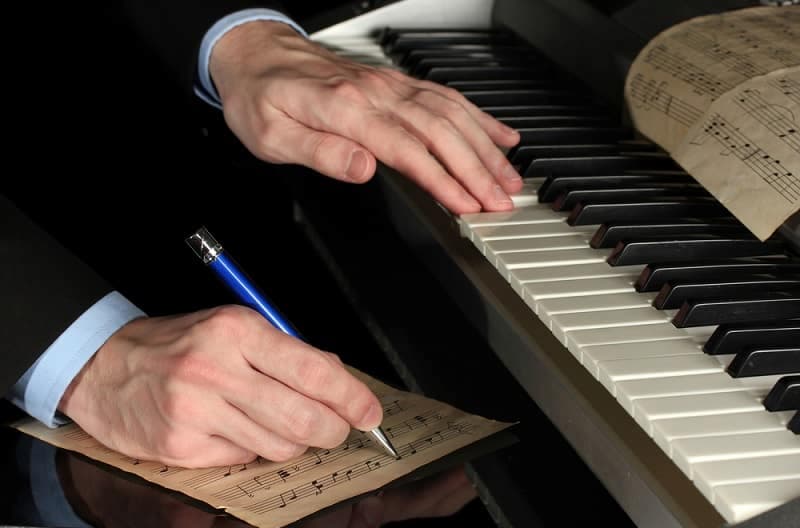A musician has essentially two ways to create new music; either by composing or by improvising; both of these techniques follow very different processes — creating quite different results too —, equally powerful, and defining creative areas that each musician should navigate in order to reveal all sides of his personality and musical identity.

© CMUSE
In my opinion, unfortunately, nowadays composition and improvisation often lie in two different environments, disconnected from each other, and often too in entirely different musical worlds. The aspiring composer rarely studies improvisation, whilst the improviser seldom consecrates studying time to composing. And they do not meet often; one behind his white sheet and the other in his rehearsal room.
Takemitsu/Beethoven/Improvisation (Masako Ohta)
In a past article, “Mr Jekyll & Dr Hyde”, I explain what I define as my musical schizophrenia, and how “when improvising, I focus on tension, release, impulses, abstractions, textures, and impressions; when composing, I often think of simplicity, macro, micro, structures, mathematics, geometry, narratives, and images”. If some musicians do not have such bipolarity in their musical mind — many of Bach’s works were improvised music, and in his case one can think of improvising as composing on the spot —, missing on so many musical facets and approaches seems to me a shame.

© skoove.com
Traditionally, composers have been known to be great improvisers; from Bach to Mozart and Beethoven, and up to the early Romantics, improvisation was common practice. In fact Bach, Mozart, Beethoven, (Clara) Schumann, Joachim, and Liszt were all known for being great improvisers as well as great composers — and performers too! As the orchestra grew bigger and bigger though, composers started focusing on elaborating complex orchestral parts and maximising their newfound resource — the modern orchestra —, and somehow the attention on improvising disappeared, as well as the performing of the composers to the conducting of the orchestra. In recent years, only a handful of composers are known for being improvisers too; in the past century figures such as Boulez, Riley, Stockhausen, Takemitsu, Wolff, Xenakis or Young. In contrast, some modern composers, such as Messiaen and Boulanger placed the accent again on the art of improvising, and very rightfully!
Nadia Boulanger – Trois Pièces (Trois Improvisations) for Organ (1911)
Nowadays, however, much academic training focuses solely on one or the other, and it is quite rare to find skilled composers/improvisers. They are both following very different schools and their best representatives, in classical and in jazz, only seldom meet — over the years though, talents in both have emerged, such as Keith Jarrett and Brad Mehldau. But this does not mean that it is meant to stay this way. In other classical music of the world, such as Indian, improvisation is a crucial part of the composition and one cannot coexist without the other. Improvisers, start composing; composers, start improvising!
For more of the best in classical music, sign up for our E-Newsletter




